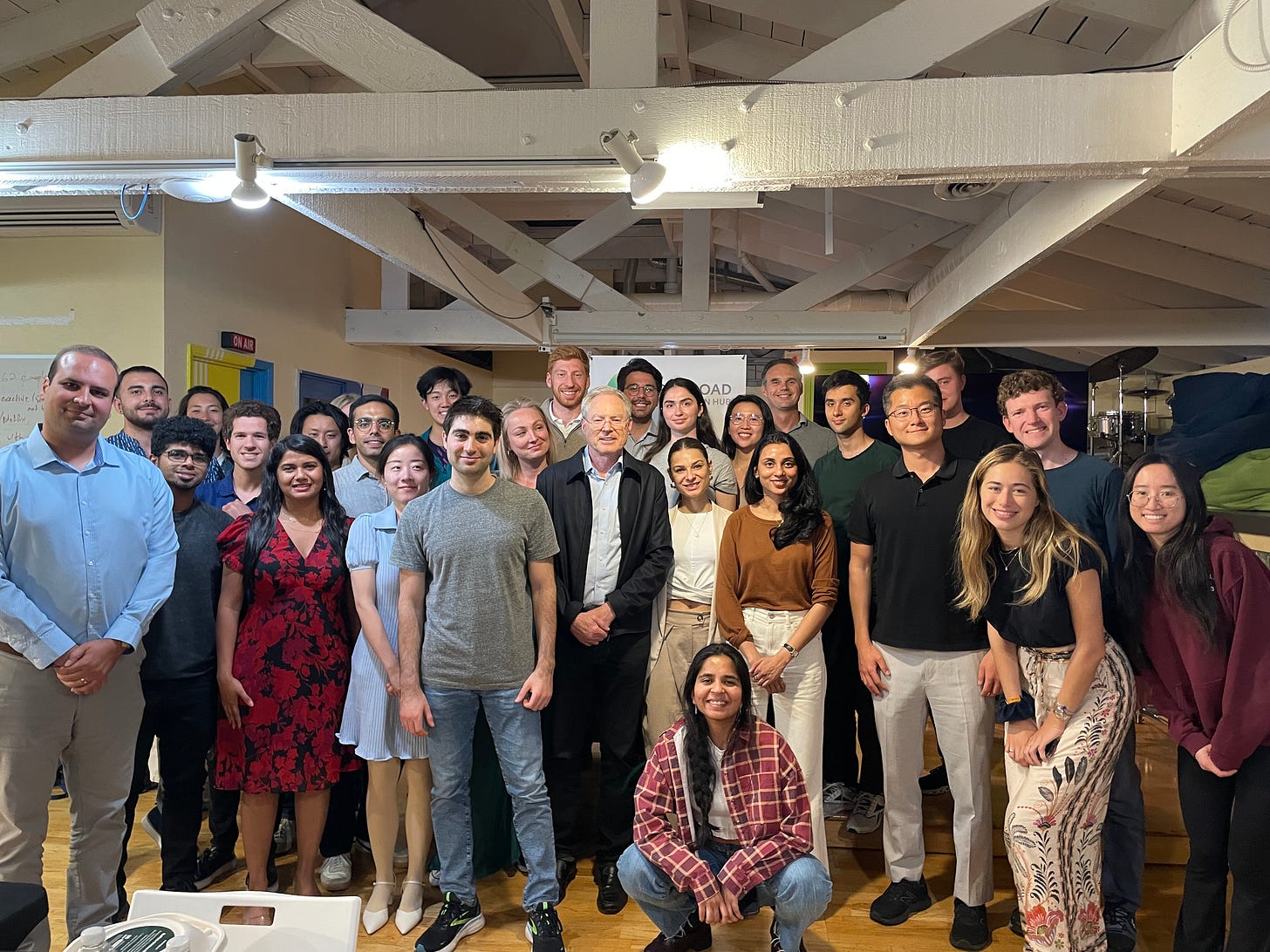Eric Horvitz Dinner
Insights from Microsoft's Chief Scientific Officer
It was a great honor to organize an Icons dinner with Eric Horvitz, the Chief Scientific Officer of Microsoft. Eric has been a pioneer in AI research for several decades, and it was fascinating to hear his insights on a wide array of topics. Thank you so much Eric! Thanks to Silkroad Innovation Hub for hosting us.
How has Eric stayed at the forefront of research for 40+ years?
Staying close to young talent: Eric works with several PhD interns every summer, who help expose him to new ideas.
Being social: Eric loves going to conferences, meeting new researchers, and exchanging ideas.
Being curious: Eric’s long-term questions about AI drive his passion to learn and create.
What drove Eric’s career pivot at Stanford?
Eric began his time as an MD/PhD student at Stanford focused on neurobiology, with a goal of better understanding the human mind, but pivoted towards computer science as he decided that AI was the path to deeper understandings of intelligence.
What’s special about Microsoft Research?
Researchers are given tremendous autonomy.
A core principle has been that they can freely publish without higher approval.
The research teams collaborate closely with product teams to ship advances at the frontier.
What’s Eric’s management advice?
The best way to manage is to hire the best people.
Which research area should be a focus but often gets less attention?
We should prioritize developing a better understanding of AI’s “deep currents” – the subtle but profound human and societal implications of AI, such as its impacts on human self-identity, agency, and potential overreliance on AI.
Will AI complement or replace knowledge workers?
Eric believes that AI will primarily augment humans at least in the short-to-medium term, and in many areas, forever.
The key challenge for us all is figuring out how to most effectively leverage AI to achieve our goals and to enhance our performance.
Which jobs are the most resistant to replacement by AI?
Many jobs will be resistant, including human arts and literature, leadership in the sciences, roles where “human touch,” caring, and interpersonal engagement are central.
Tasks that require the precise use of human hands in craftsmanship and shaping.
He believes that, amidst a rising sea of automation, that a human-centric “caring economy” may come to be even more central than human caring is today.

